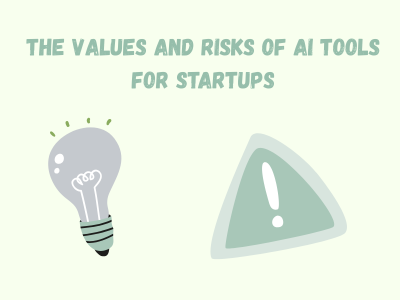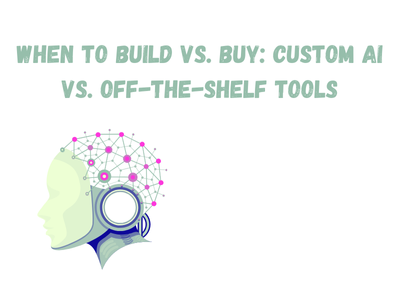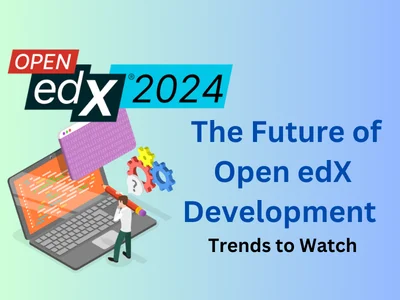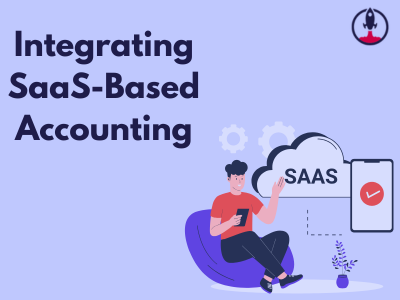The startup community is abuzz with talk of generative AI integration for good reason. It offers a range of impressive capabilities like text and image creation and personalized code suggestions that are constantly advancing rapidly. However this raises a question for startup founders, amidst the excitement—how much of this technology is truly beneficial and what risks does it potentially pose?
The Values and Risks of AI Tools for Startups
When looking into AI tools for startups it’s vital to differentiate between the hype and actual value they provide. The appropriate tools can accelerate your progress, enable you to experiment with a variety of ideas, and accomplish more with fewer resources. On the other hand, using the wrong tools can result in resource wastage, compliance challenges, or even harm your brand’s reputation.

Generative AI in a Startup’s AI Plan
Let’s delve into how generative AI plays a role in a startup’s AI plan—highlighting its strengths and areas for caution while also exploring responsible usage.
How Startups Use Generative AI
Boosting Efficiency with Limited Resources
Small businesses frequently face limitations in resources and are under pressure to work efficiently within tight timelines. This is where generative AI tools excel. They provide solutions to streamline labor processes, assign a boost to innovation, and assist small teams in achieving scalable results.
Popular AI Tools in Use
Startups are already leveraging AI. Entrepreneurs rely heavily upon content for their startups to thrive successfully in the age today. Tools such as Jasper and Copy.ai are increasingly popular choices, for creating the necessary content efficiently and effectively.
● Create content for blog posts and advertisements well as design landing pages.
● Crafting custom email series
● Craft multiple product descriptions, at once.
Utilizing AI driven startup solutions enables teams to speed up their iterations and test campaigns without the need for a complete content team on board.
Step 3: Developing Product Designs and Prototypes
AI generated algorithms go beyond text generation to help startups create design assets swiftly with tools, like Midjourney and DALL·E. Furthermore developers are leveraging GitHub Copilot, Tabnine to expedite code suggestions, streamlining development processes and shortening time to reach MVP status.
Enhancing Customer Interactions
Startups are utilizing AI chatbots and automated response systems along with recommendation engines to enhance user interactions seamlessly while enhancing customer satisfaction and enabling human teams to concentrate more effectively on strategic responsibilities.
Streamlining Internal Tasks
AI has the capability to assist with tasks such as drafting internal reports and condensing meeting notes or assessing customer input – it’s all about improving efficiency by being more strategic rather than simply putting in more effort.
What Startups Should Be Wary of Doing Riskily
Data and Adherence to Regulations
AI tools often need customer data to produce results effectively. However, handling this data without proper policies can lead to concerns about privacy and following regulations – especially when dealing with personal or health-related information.
Bias and Errors
Generative AI systems have the potential to mirror biases in the data they are trained on or generate erroneous outcomes that may not be suitable for customer interactions without oversight mechanisms to prevent any undesirable or potentially damaging results from being produced.
Over-Reliance on Third-Party Tools
Many startups often fall into a trap when relying heavily on external APIs or platforms for generative AI usage. Therefore, this can lead to accumulating debt and facing uncertainties related to pricing adjustments, outages, and shifting terms of service agreements.
Crafting a Strategy for a Cutting-Edge Startup Powered by AI
Some startups may not require an AI strategy roadmap; however certain guiding principles can significantly benefit them in the long run. Here are some examples of how young companies leverage AI:
● Let’s begin by setting a business objective.
Don’t just incorporate AI for the hype; leverage it to address challenges or streamline a bottleneck in your processes.
● Make sure to involve people in the process
Even the advanced AI tools are prone to errors; they should be utilized to improve human judgment rather than substitute it entirely—especially in domains concerning customers or regulatory adherence.
● Create in a manner.
Consider emphasizing the AI capabilities that set you apart and streamline tasks than automating everything in one go.
● Ensure you have a strategy for growth and a backup plan.
Make sure that whatever you create or incorporate today remains stable and affordable as your user community expands.
Exploring Practical Applications of Generative AI for Emerging Businesses
In search of ideas to spark your creativity? Check out some meaningful ways startups have incorporated generative AI tools into their everyday business practices.
● Writing emails efficiently by tailoring outreach to individual user actions and profile information.
● Crafting onboarding experiences involves customizing content and guidance based on the users’ specific role or industry utilizing advanced AI technology.
● Creating support resources for users by generating informative articles using historical ticket data.
● Testing product descriptions through A/B testing involves trying out 10 versions of feature descriptions quickly.
● Text for enhancing user experience (UX); tips for writing small bits of text in calls to action (CTAs), buttons, and error notifications.
● Sales enablement involves condensing CRM records or phone call transcripts to assist sales teams in preparing efficiently.
Starting with any of these scenarios offers a balance of practicality and minimal risk. This makes them ideal choices for those new to delving into AI resources for budding businesses.
When your new business expands in size and scope you may reach a stage where pre made AI software’s no longer sufficient, for your needs. While these tools are useful to begin with they may struggle to adapt to your business processes or industry related information. So, this is the moment when startups start looking into developing personalized AI solutions tailored to their needs and requirements.
When to Build vs. Buy: Custom AI vs. Off-the-Shelf Tools
How do you determine whether it’s better to continue utilizing tools or start developing your own solutions?

Purchase when:
● If you’re looking for something budget friendly for everyday tasks, like writing or creating images and summaries.
● You haven’t established a team for artificial intelligence and machine learning yet.
● Flexibility isn’t a make or break factor. You can operate within the boundaries of the tool.
Build custom solution when:
● You may be interested in utilizing information or getting trained in specialized industry insights.
● You must have authority over performance, user experience (UX) or security measures.
● You’re integrating AI into the product rather than just using it in the background.
Many startup companies often opt for a combination strategy. Beginning with established tools and gradually incorporating custom features as they grow in size and scope to maintain flexibility without limiting themselves to set boundaries.
When you opt for custom development in AI technology you unlock advanced possibilities that are designed specifically for your product and target audience. This gives you an advantage that competitors who depend only on, off the shelf solutions may never achieve.
Closing Remarks
Generative AI can enhance the capabilities of teams but it is not a one size fits all solution. The true magic unfolds when intelligent tools are paired with a thought-out strategy.
It’s best not to get distracted by every trend out there. Instead concentrate on creating a lineup of AI tools for your startup that align with your goals and team capabilities. So, test the waters with steps and make improvements gradually.
In a world of distractions and misleading information sources, it’s important to have the right attitude and a bit of doubt. As a consequence, this can help you uncover AI tools that truly have an impact.
- 5 Best Mobile App Builders in 2025 - September 18, 2025
- Sitemap NoIndex SEO Tools vs Shopify Sitemap Apps - August 7, 2025
- Booking Plugin vs Contact Form for Appointments: Which Is Better? - August 1, 2025


